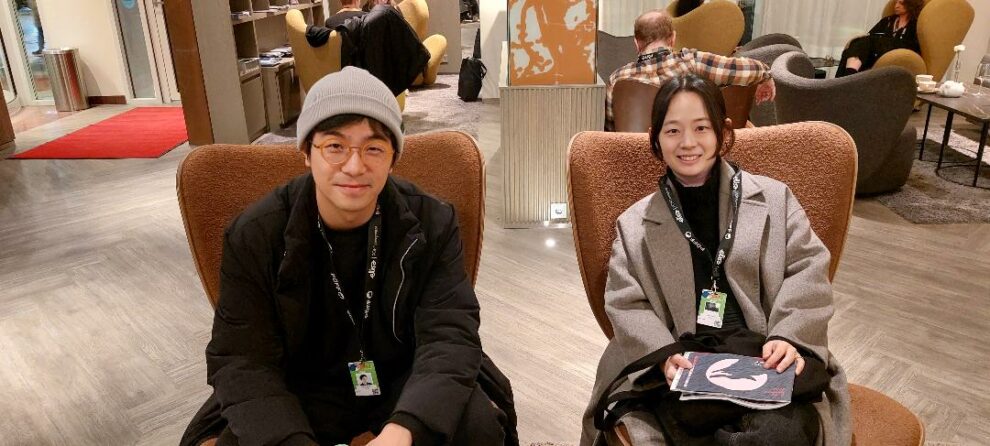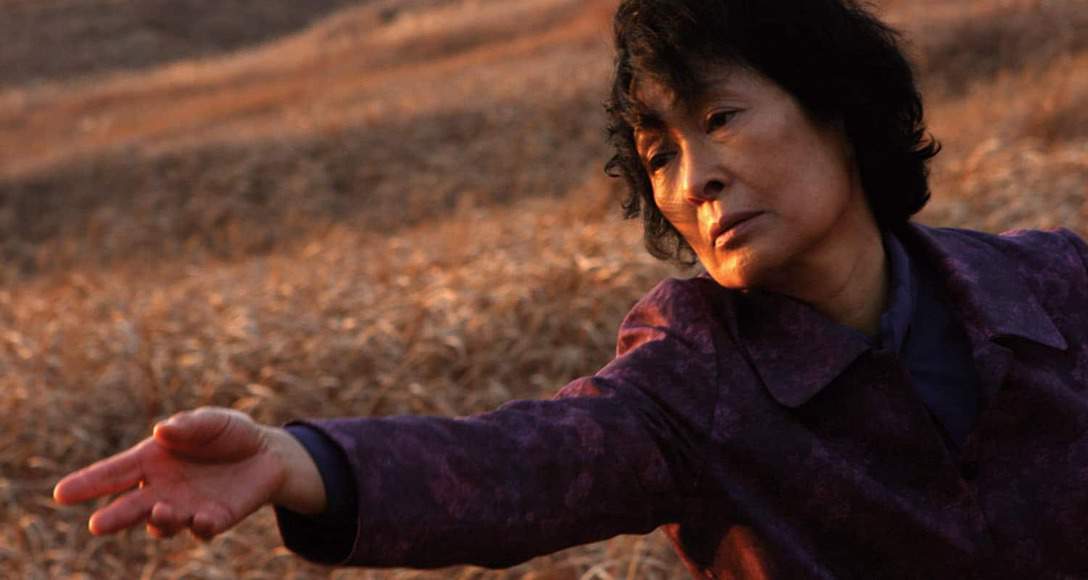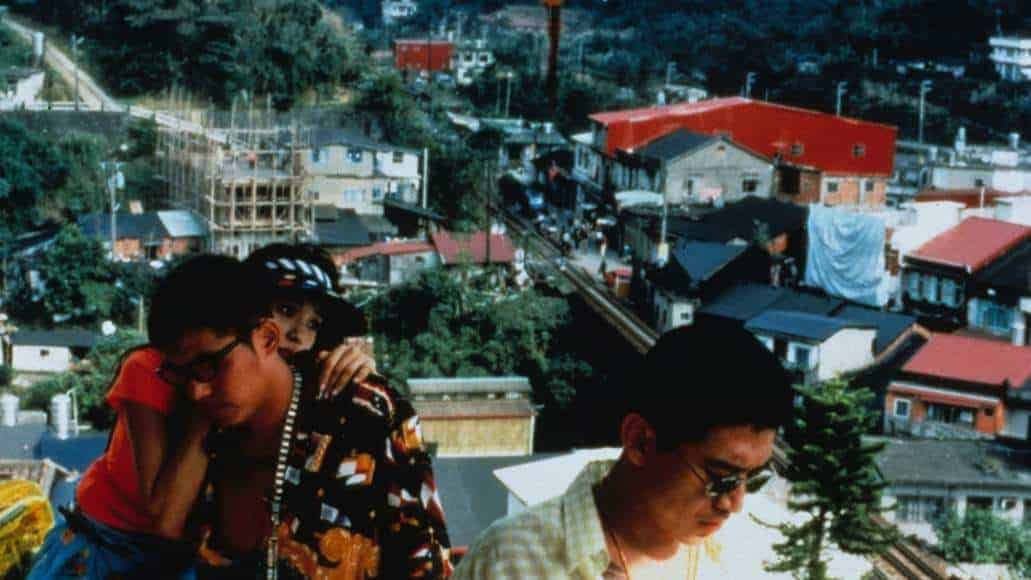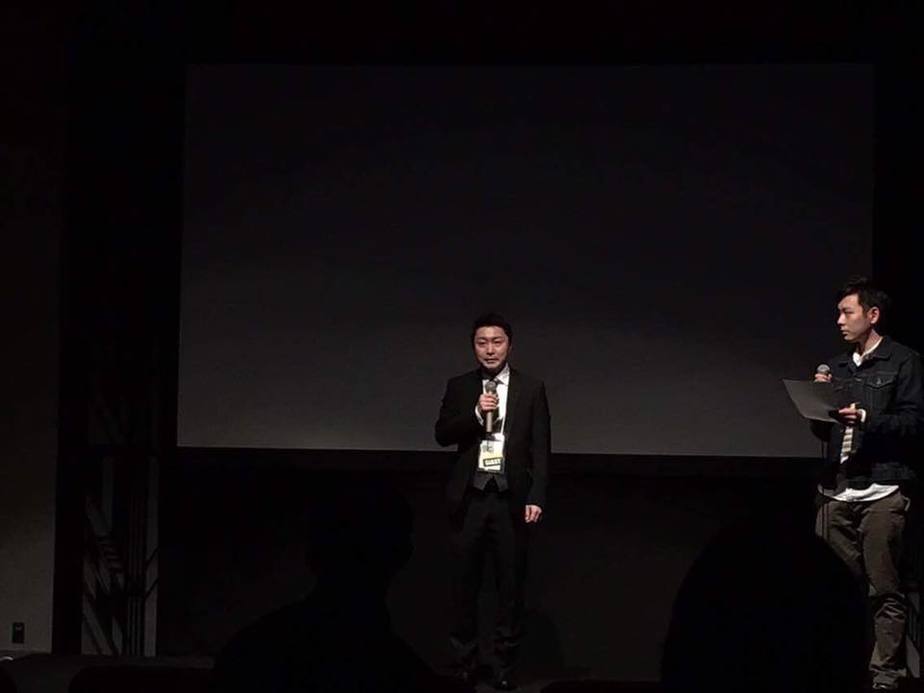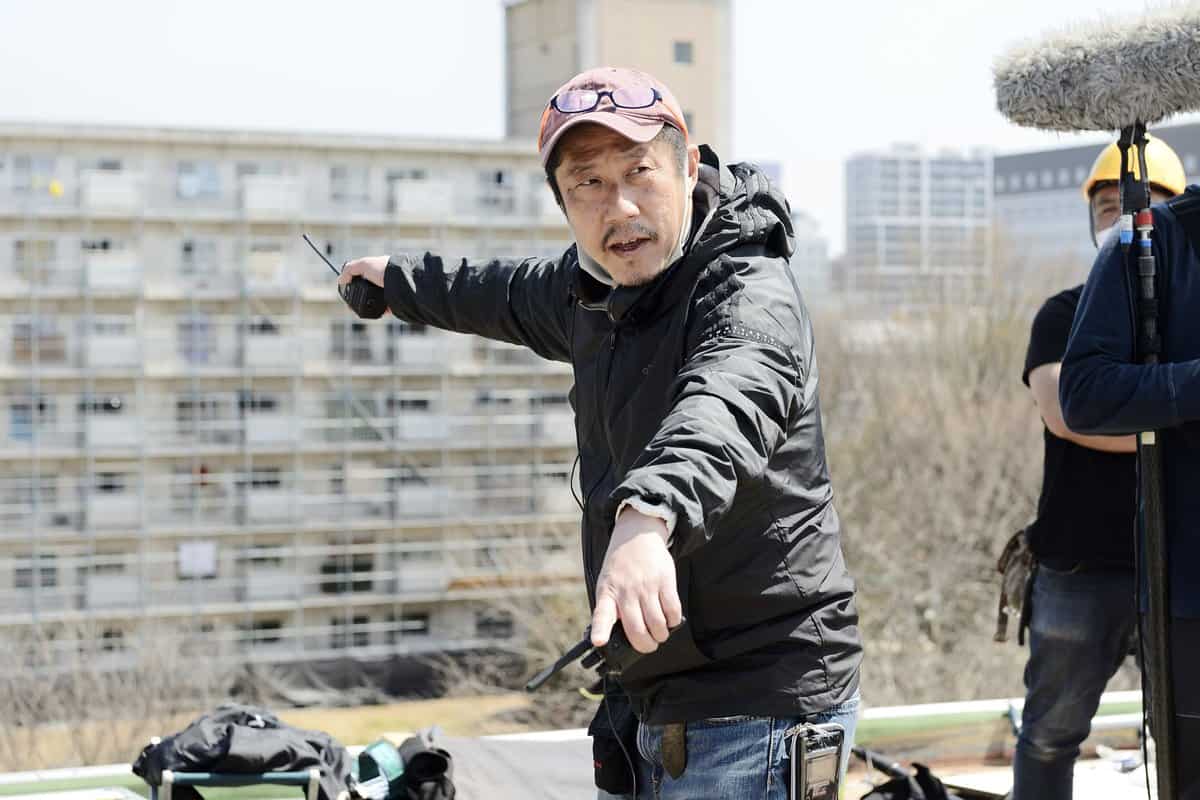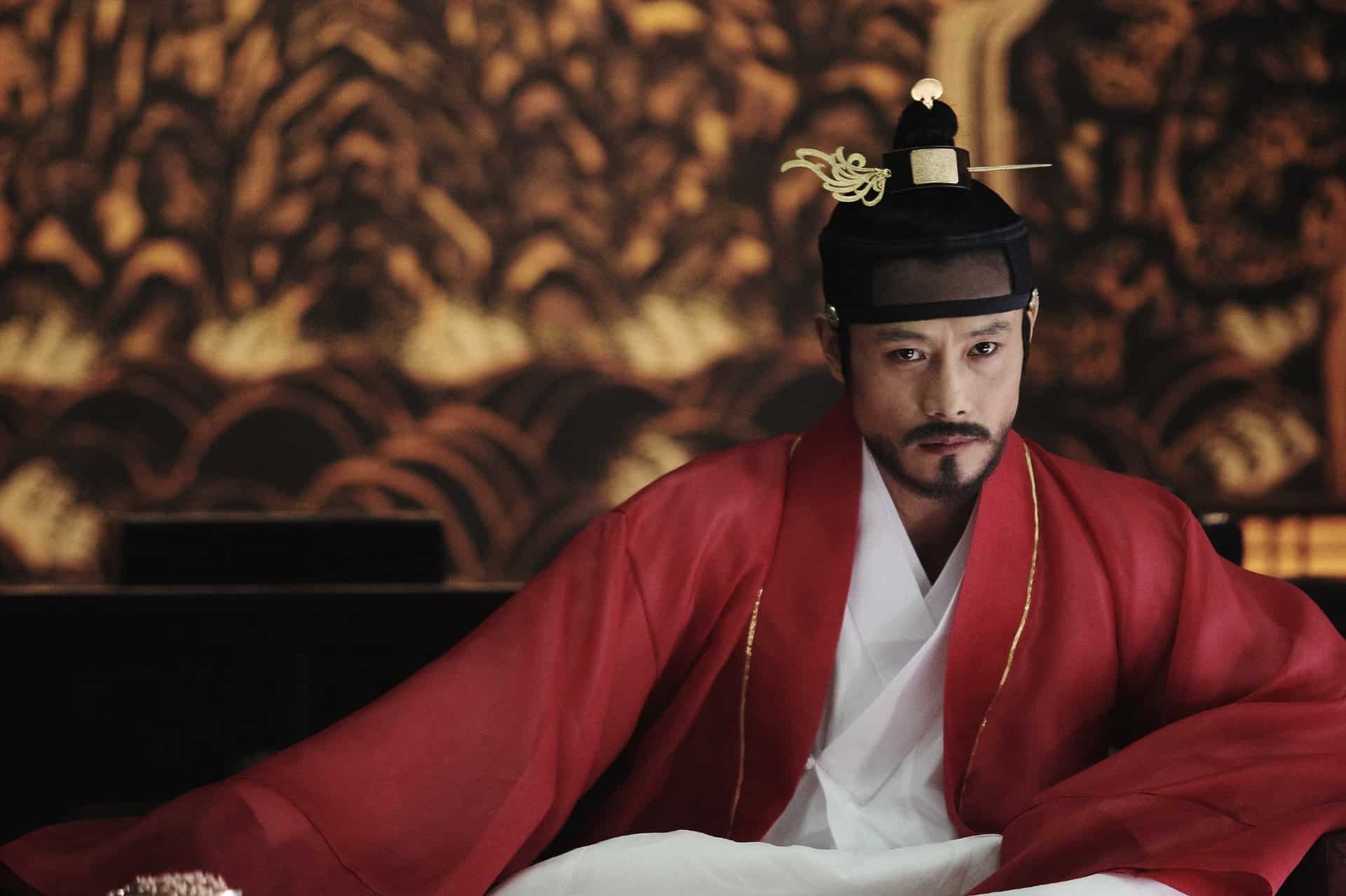Jiajun Zhang and Hee Young Pyun started collaborating after they met during their studies in London. The first joint project came to life in 2015 with a contemplative short “In The Blanks” entirely shot in 'empty' London seen through the eyes of a public transport commuter. In 2021, their short “If You See Her, Say Hello” won Special Jury Award at Vision du Réel. “All, Or Nothing At All”, which screened in the First Feature Competition of Tallinn Black Nights Film Festival, marks their feature length debut.
In this charming first-timer, the audience is taken to the belly of (architecturally seen) monstruously ugly shopping mall in Shanghai, in which a baroque dome with painted ceiling hovers over the giant led walls screening snowy landscapes. In it, three characters meet under different circumstances, their stories re-told and re-arranged in several scenarios.
Asian Movie Pulse asked the director Oscar Zhang and his co-writer Hee Young Pyun to tell our readers something about themselves before the official round of questions, as the introduction to this interview about their heart project
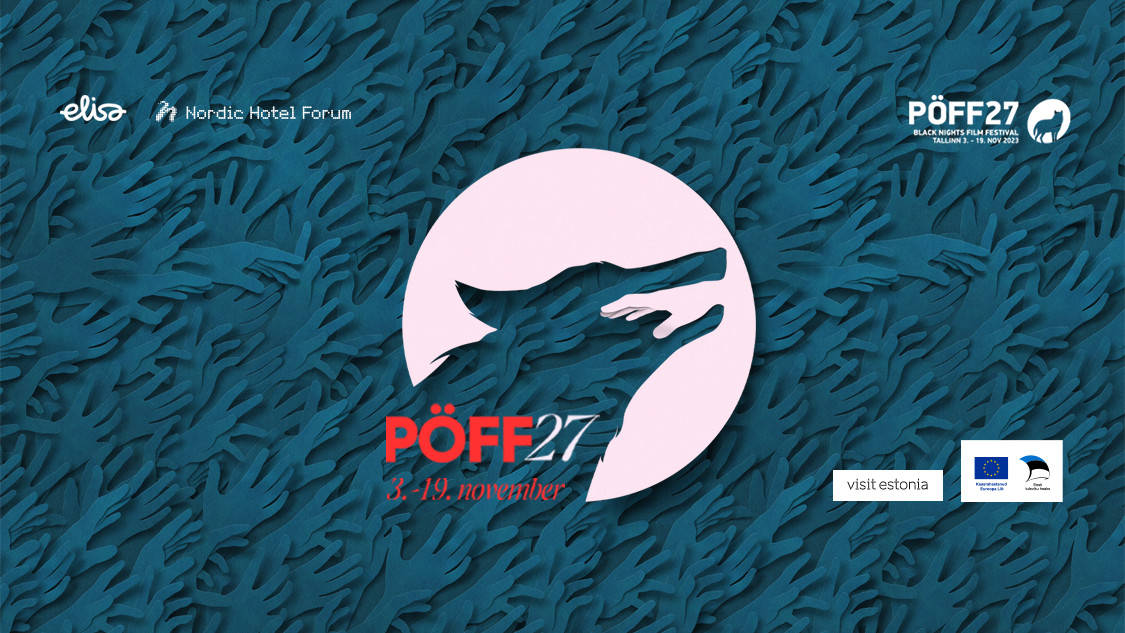
JOZ: My name is Jiajun Zhang, and my friends call me Oscar. I am from Shanghai, China, where I spent most of my childhood. I studied film in London from 2014, and it is there that I met Hee Young. We started working together and we returned to China in 2018. One day, we stepped into an unusual shopping mall, and that was the starting point for our debut feature.
HY: I studied film not to become a filmmaker but to be a better architect. But then, I collaborated with Oscar on lots of projects and I slowly started enjoying the filmmaking process. We are always discussing about the conditions we live in, about the architecture, urban settings, because – just like Oscar, I grew up in Seoul which is a monster metropolis too. Wherever we go, we discuss about what kind of space we use, places we have in our mind… One of the main issues with that shopping mall was the very distracting architecture.
JOZ: When we stepped in, we got really impressed. We saw many young people drifting around. Some had their business there, but others did nothing, just hanging around. Shook by this moment, I saw a very young guy, probably a student doing this job in a huge indoor playground. He was taking care of a lot of younger kids, from toddlers to primary school age. He himself looked like a kid. I was observing all those young lives spending their time in a gigantic space, and I was hit by the idea that we maybe should make a movie about it and interact with the shopping mall.
I am interested to find out more about the construction of your narrative, especially about retelling the story from different perspectives.
HY: We were always quite interested in the question of what our filmic story is. Sometimes we had a problem with it, but we were nevertheless intrigued. Throughout the shooting, we were discussing the story a lot: what it means for this film, and what the film means to us, how we should present it in this space. Yesterday, after the screening, I spoke a bit to the audience about it. During the writing, we were kind of lost, and at one point we didn't know how to proceed. And then one day we just came up with a new form which was very, very architectural.
JOZ: If there were only one story we would probably focus more on the core plot and the people inside of it, but since there was another one, somehow the place itself has become more noticeable than the characters.
HY: We started focusing on the relationships between the three characters.
Speaking of the architecture, and because the film is staged in such a crazy place, how difficult was it to get all the permits and licenses to shoot there?
JOZ: It was magic. We had a co-producer who knows a lot of people in town, and somehow she knows someone high up in charge of the shopping mall, so it was thanks to her that we didn't have to pay much. But of course, the shooting conditions were not like when you shoot a Hollywood movie; we were not supposed to bother neither the customers nor the employees. Sometimes, we had to work with lots of limitations inside of the building. They didn't let us put the camera in certain places, and we had to struggle with the angles and framing.
HY: Half of the film felt like shooting a documentary.
You are mentioning three characters, but there actually is another crucial one – a young man with an angelic voice.
JZ: One day we were wandering around the mall, and we saw someone exactly like the man from the movie. He had an eco bag on his shoulder and he seemed very forlorn, detached from the rest of society. I think that he had some condition, but I am not sure what kind of. He was talking to himself and playing with his fingers, and I thought of him as a very interesting spirit in such a place. So, when we created our fourth character in the script, and after we spoke to our actor, we decided that he should be the spirit of the mall . “You can be the god of this space, if you want it”, I said to him. I think that this was a good move.
Which of course brings me to the question of your cast.
JZ: Actually, the Chinese title of the movie is slightly different from the English one. So, in original it is: “All The Sad Young People”, and that is one layer that we had right from the beginning. We wanted to portray the atmosphere of the contemporary youth, so we were particularly looking for people who can represent that energy. We did a vast search. One of the main guys in the movie is not an actor, I think that people even call him the number one drummer in China. He got famous on a music show because he plays so well. We saw him playing and so attracted by that energy we decided to use it. This is how we pieced the puzzle.
The difficulties of positioning the camera were already a bit addressed, but how did you reach a satisfying solution? Is it something you let your cinematographer decide about?
JOZ: We did a lot of tests. I think that we used the same method as in our previous projects. We brought all our creatives to the mall and told them that they should feel the place. When our DoP Chao Liu came in, he did lots of takes inside of the building in order to comprehend what the whole thing was about. Then, we communicated the kind of visual that we wanted, but on the set, a lot of what we wanted wasn't possible due to many limitations that we mentioned previously. Liu proved to be great at impro. At the beginning, he was carrying a heavy equipment but after a while, he realized that the whole thing could be done differently. He did a great job combining natural light with the artificial lights of the shopping mall to create the final look.
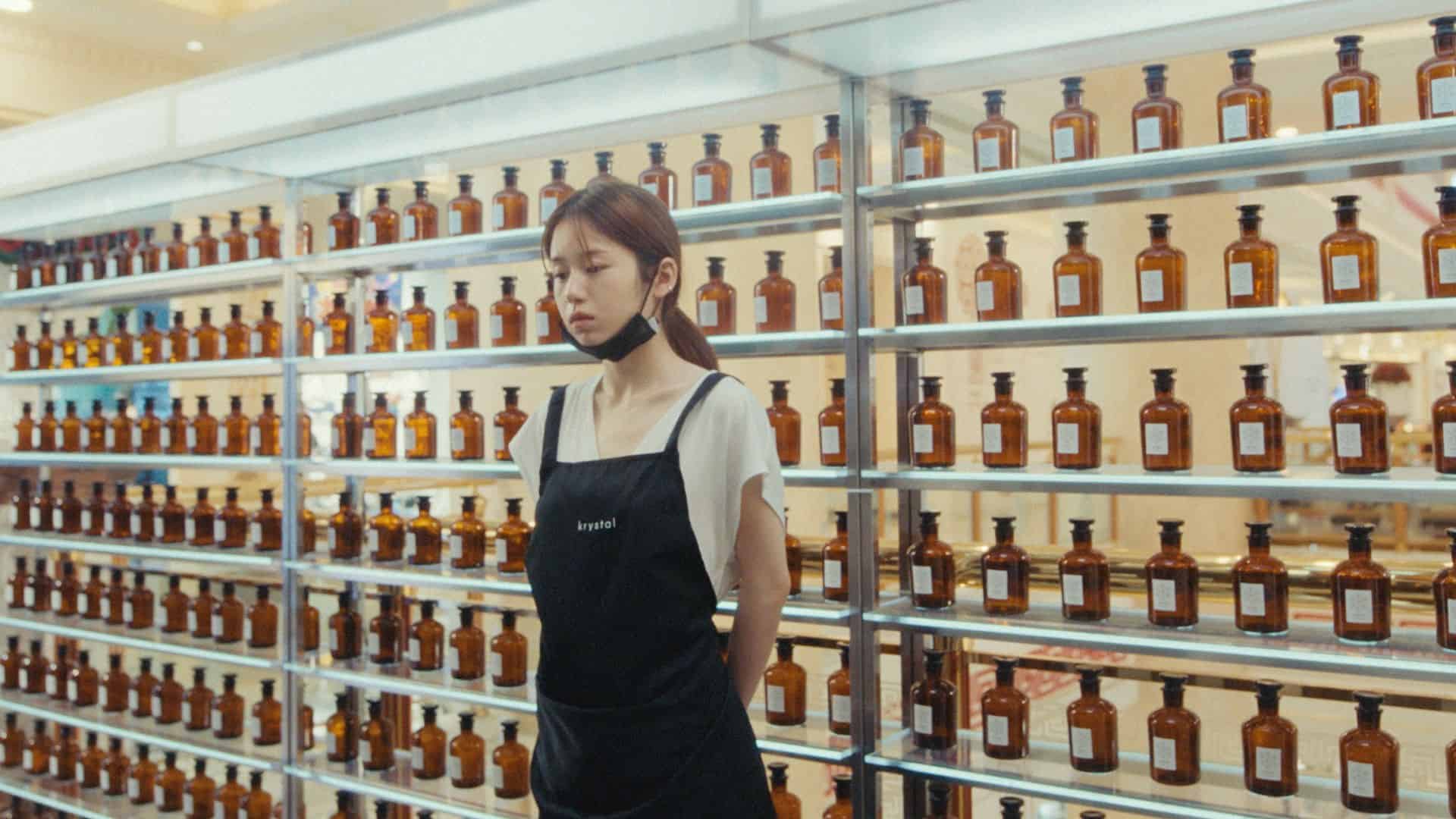
The soundtrack is a wild mixture of everything. Can you enlighten us about your choices?
HY: Because of the connection people feel to that shopping mall it's almost a religious feeling, like being in a church, something they almost believe in. We were surprised how local people are praising that monster and how much they are obsessed with it. We wanted to out this kind of religious atmosphere with the music and therefore we searched for Western classical music for the background music in the mall.
JOZ: For the other parts, we worked with this guy called C-Low, who has changed his artistic name to C103. He is a very interesting musician that we got to know through a Chinese hip-hop show. He stood out with his style and expression. We simply wanted to work with him. We didn't have a fixed idea, and we told him that he should come to the shopping mall to feel it, instead. All in all, the main work was done after the editing. He watched the film, and we told him not to restrict himself and to create freely. At the beginning, it didn't really work out the way we wanted, so we started narrowing to what we needed. And he also did a great job.
What are your impressions after the official world premiere?
HY: We were surprised by questions that people asked us yesterday, and generally about their response.
JOZ: The programmer who did Q&A told us that Estonians are very shy, but we were asked question after question. It was touching, especially since it was already past 11 pm. The audience was very passionate, and we were having a moment of joy. It was a diferent feeling from the one we experienced with our short film, and the moment that we had here was delightful. Exhibiting our film and interacting with the audience meant a lot to us. After the Q&A, we ended up greeting and saying goodbye to each one of them, and I really liked that feeling. For us, it's probably better than standing on a red carpet in a place we are expected to respect a certain dress code.
HY: We were approached by a young woman who works in the shopping mall in Tallinn and she told us how surprised she was that a movie from China portrayed the feeling she is going through every day at work.
JOZ: She mentioned the contrast of being the staff and watching all those nice consumer areas, compared to the bleak working spaces. She said that the film really portrayed an environment she felt familiar with.


